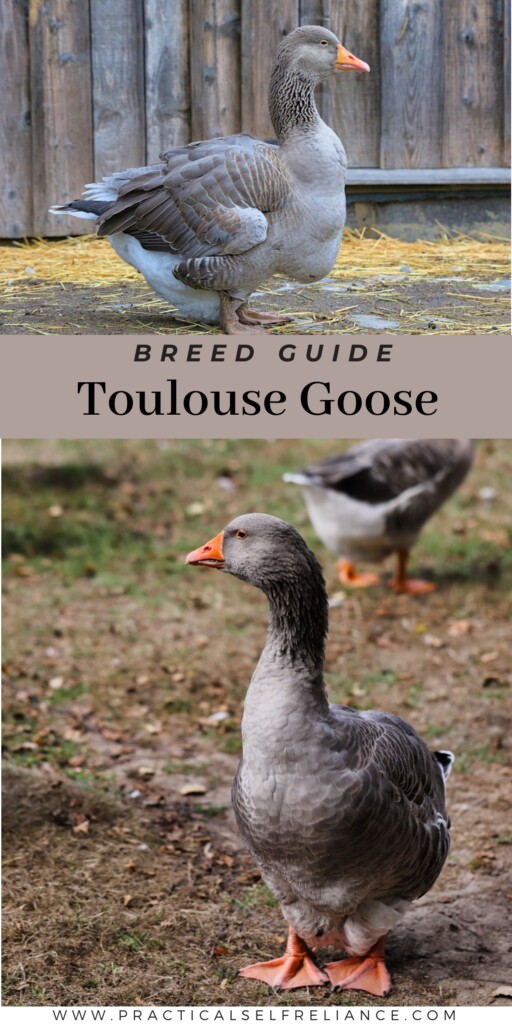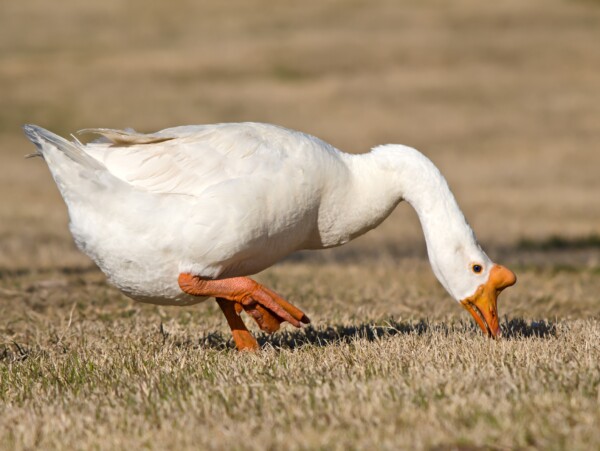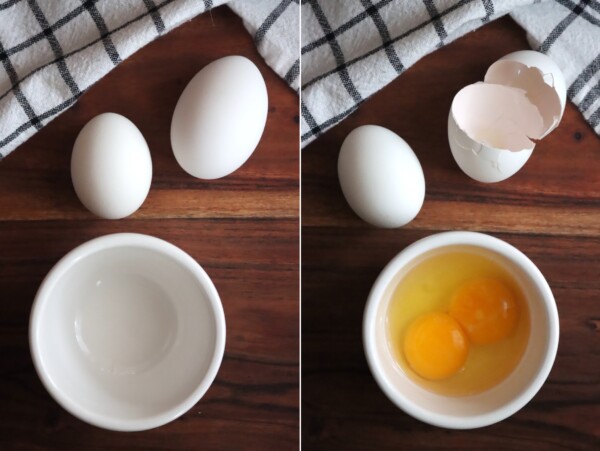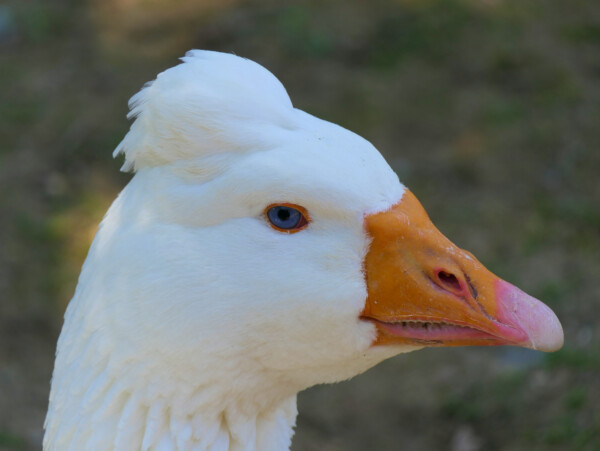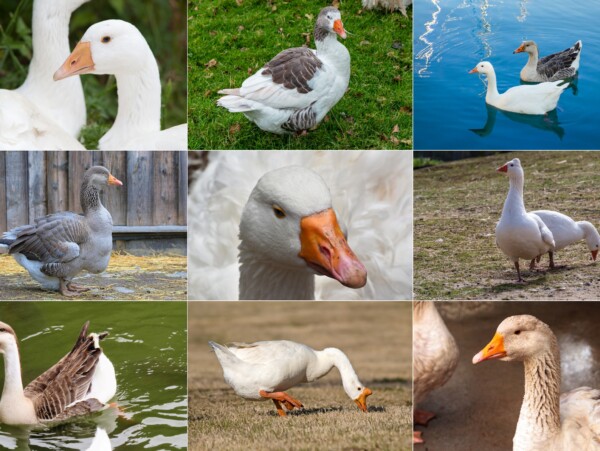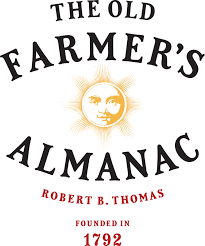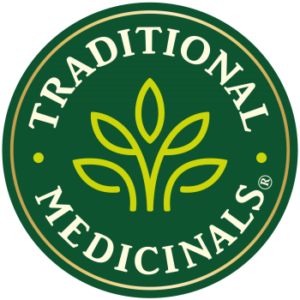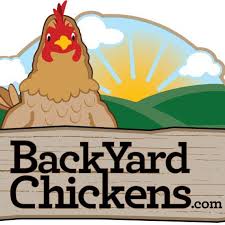Affiliate disclosure: This post may contain affiliate links. Please see our Privacy Policy.
Toulouse geese are gentle giants of the poultry world—broad-bodied, soft-spoken, and deeply rooted in homestead tradition. Originally bred in France, these geese were historically used for meat, fat, and foie gras production, and their calm, slow-moving nature made them a staple on small farms across Europe. With loose skin, deep keels, and heavy frames, they’re a breed that seems to radiate contentment as they waddle around the pasture.
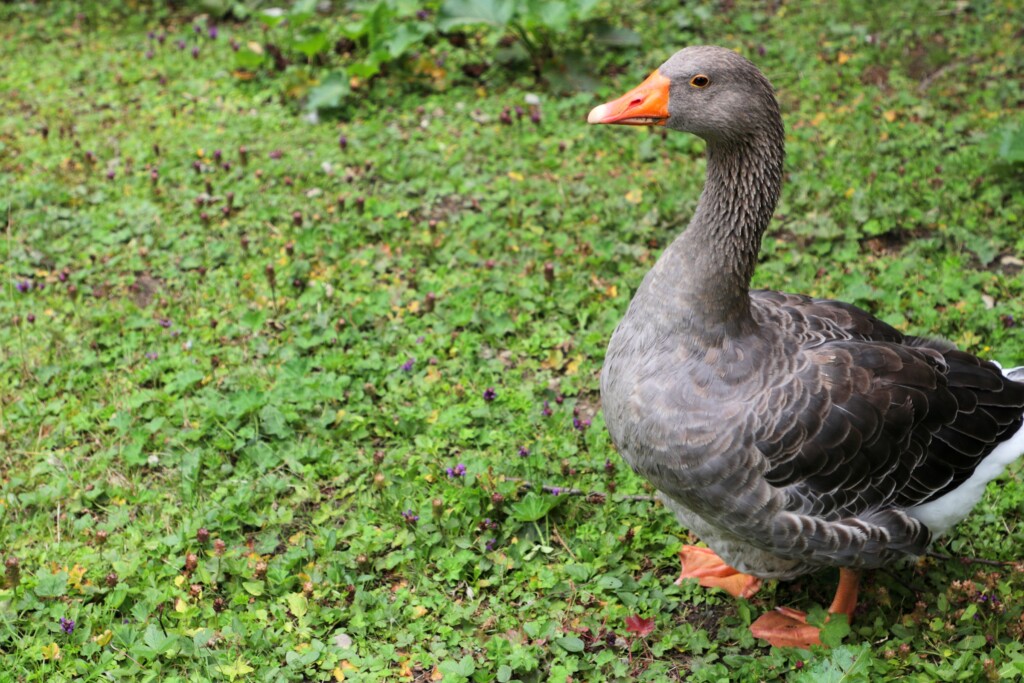
We brought Toulouse geese into our flock as an alternative to Embdens, looking for a bird that was large but just as laid-back and easygoing. Right away, their relaxed demeanor and steady presence won us over.
Unlike some lighter breeds that patrol the yard like sentries, Toulouse geese are content to quietly graze and nap in the shade. They’re not aggressive, rarely loud, and don’t get worked up unless something truly unusual happens. Even during breeding season, they’re easy to manage—and while they’re not flashy, they are undeniably endearing.
I’ll admit I’m a bit taken with the extra boaty Duplap Toulouse which are heavier and seem to have jowls and rolls everywhere. They’re hard to find though, and we ended up with mostly production Toulouse, which look like normal geese without the extra “rolls” of skin and padding.
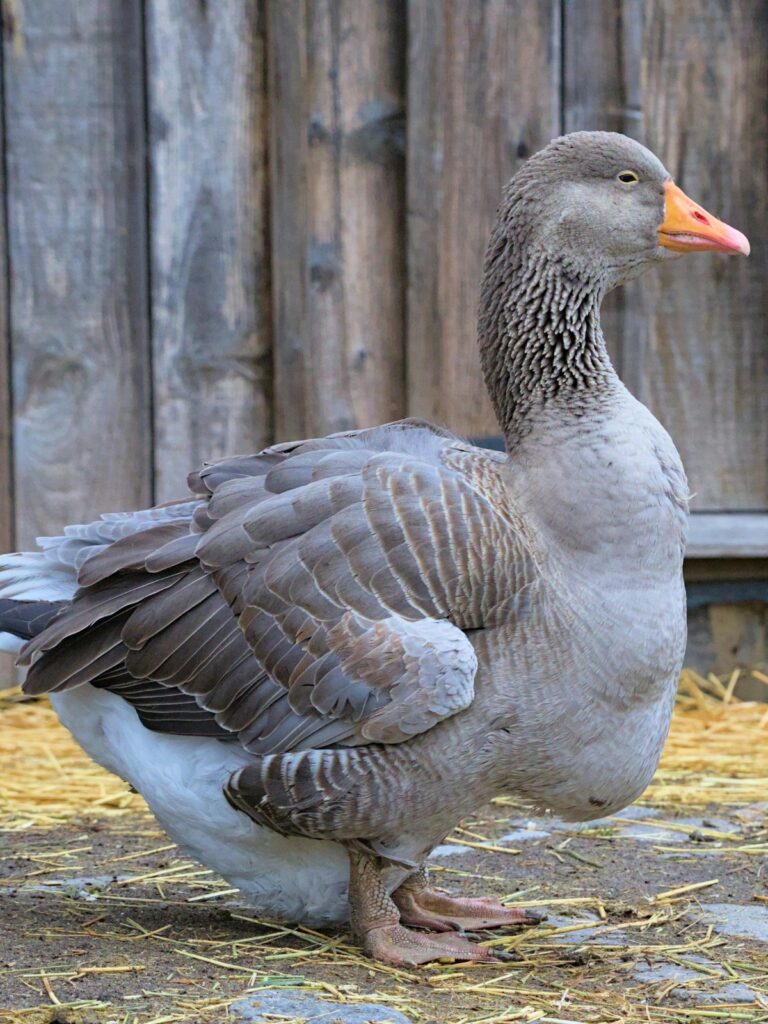
What Are Toulouse Geese?
Toulouse geese are a domestic breed developed in the Toulouse region of southwestern France, where they were prized for their meat, liver, and fat. They come in two main types: Production Toulouse, which are smaller, more mobile, and well suited for pasture; and Dewlap Toulouse, a heavier, slower-moving type with a prominent dewlap under the neck, loose skin, and a more sedentary nature.
While the Dewlap variety is often used for foie gras production due to its ability to fatten easily, both types are popular among backyard keepers for their docile nature, cold tolerance, and manageable personalities. They’re especially favored by those who want a large meat goose that doesn’t require intensive management.
Toulouse geese have soft gray feathers with a lighter underbelly, orange bills and legs, and an unmistakable air of gentleness. They’re not flashy, but they’re reliable, beautiful in their own way, and incredibly well suited to life on a quiet homestead.
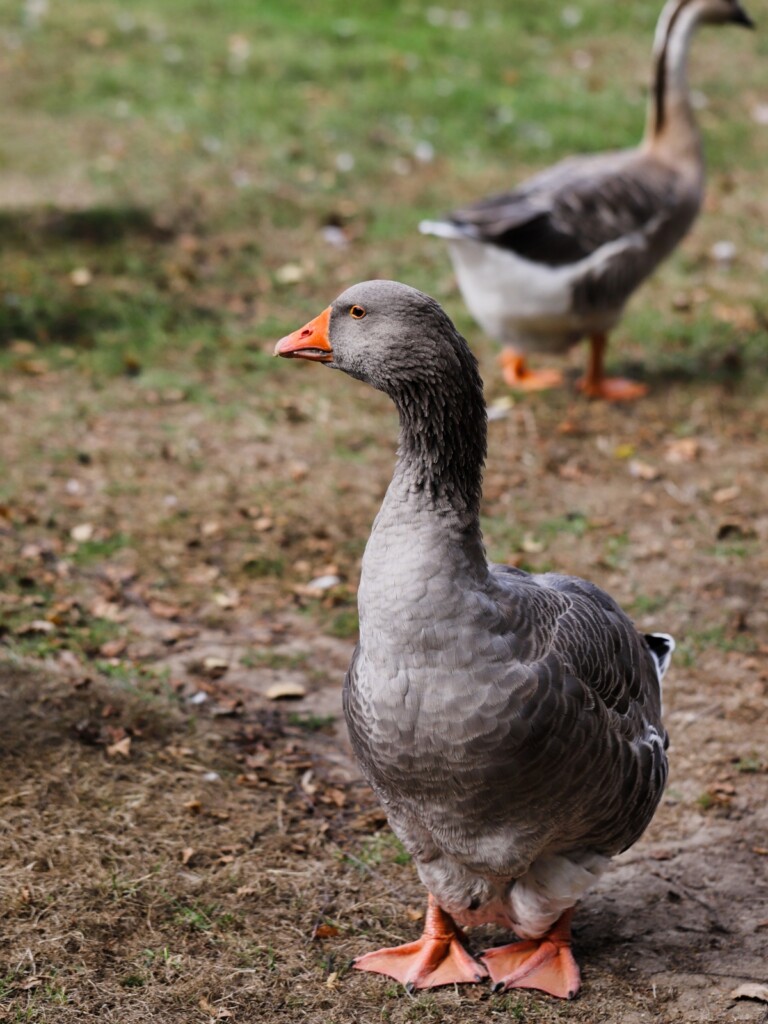
Pros and Cons of Toulouse Geese
Every animal has their benefits and costs, but these are some of our favorite homestead animals, so clearly we think the benefits far outweigh the costs!
Pros:
- Very large, fast-growing meat birds
- Incredibly calm and gentle temperament
- Quiet and manageable—even in mixed flocks
- Cold hardy and well suited to northern climates
- Excellent mothers (in some strains)
Cons:
- Prone to heat stress
- Heavy bodies limit mobility
- Moderate broodiness—not guaranteed
- Foraging ability varies by strain
- May need artificial incubation in breeding programs
Toulouse Goose Characteristics
This breed is considered one of the heaviest goose breeds, especially the Dewlap type. Ganders can easily reach 20–26 pounds or more, and geese typically weigh 16–20 pounds. Their build is broad and deep rather than tall, and they often have a characteristic keel or sagging belly line, especially in mature birds.
Temperament-wise, Toulouse geese are among the calmest and easiest to manage. They’re generally unbothered by children, other livestock, or changes in routine, and they don’t have the piercing honk of lighter breeds like Chinese geese. Their voices are soft, low, and infrequent—a definite plus if you’re keeping geese in a more populated area.
- Breed Name: Toulouse Goose
- Breed Type: Meat, dual-purpose, ornamental
- Temperament: Calm, gentle, docile
- Size: Heavy. Ganders ~20–26+ lbs, Geese ~16–20+ lbs
- Eggs Per Year: 20 to 35 eggs (seasonal)
- Egg Size: Very large
- Egg Color: White
- Lifespan: 15 to 20 years
- Time to Maturity: 26–32 weeks
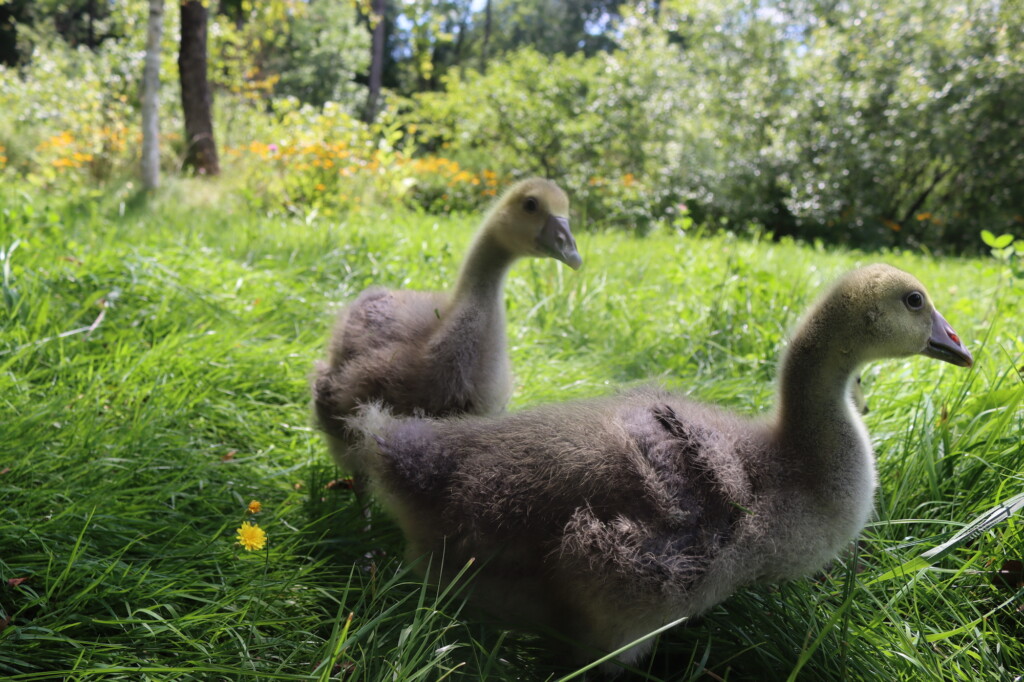
Toulouse Goose Breed Standard
Toulouse geese have a distinctly “soft” look—full-bodied with smooth gray feathers and an overall rounded appearance. Dewlap Toulouse geese have a more exaggerated profile, with loose skin under the bill and along the chest, as well as a more pronounced keel. Production types are cleaner-lined, more athletic, and better grazers.
Both types have orange bills and feet, gentle dark eyes, and broad heads. While not especially upright like Chinese or African geese, they carry themselves with a steady grace and a relaxed posture. Their soft coloration helps them blend into green pasture and dappled shade alike.
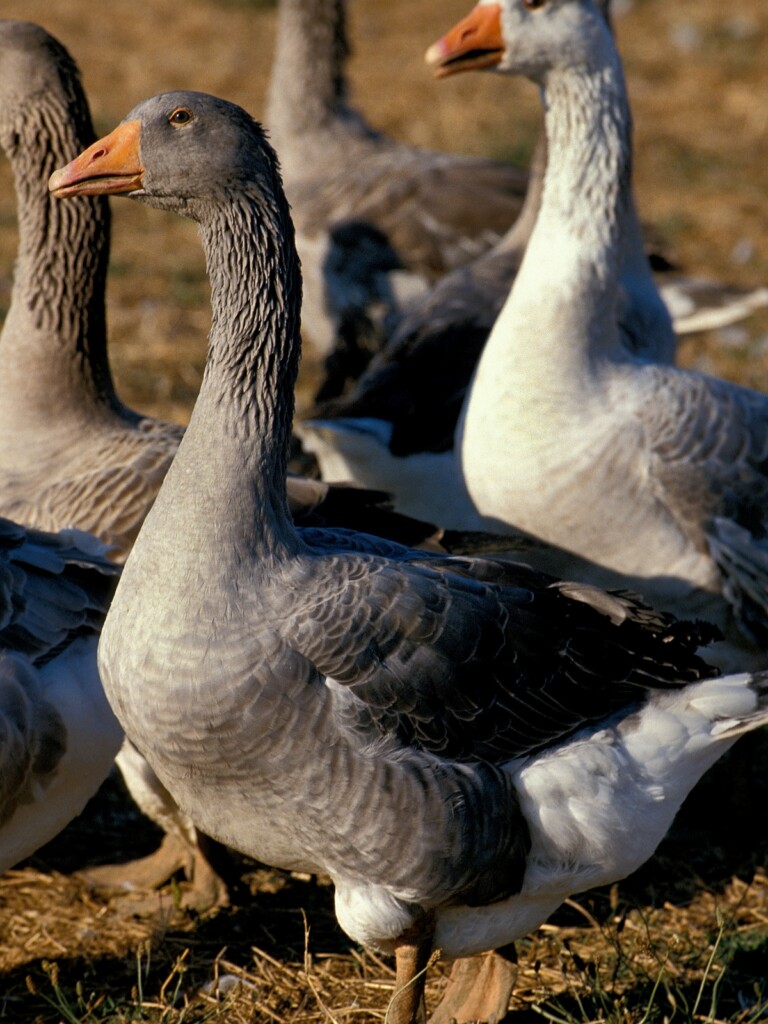
Temperament
If you’re looking for a low-drama goose breed, the Toulouse is one of the best options available. They are slow to react, rarely aggressive, and generally get along well with people and other animals. Even during breeding season, Toulouse ganders are more likely to herd their mate away from danger than to challenge a human.
That said, they’re still observant and aware of their surroundings. While they may not honk loudly at every passerby, they will keep an eye on things and offer a low, warning call if something seems off. They’re affectionate in a quiet way and often enjoy sitting near their keepers rather than following them around.
Hardiness
Toulouse geese are extremely cold hardy, particularly the Dewlap variety, which was bred to overwinter in damp, chilly conditions. Their thick layer of down and loose skin helps retain body heat, making them well suited for temperate and northern climates. They’re also fairly tolerant of rain and wet ground, though they’ll appreciate dry shelter in winter.
Their only real weakness is heat. In warm or humid climates, these geese can overheat easily, especially the heavier strains. Shade, cool water, and good airflow are essential during the summer months.
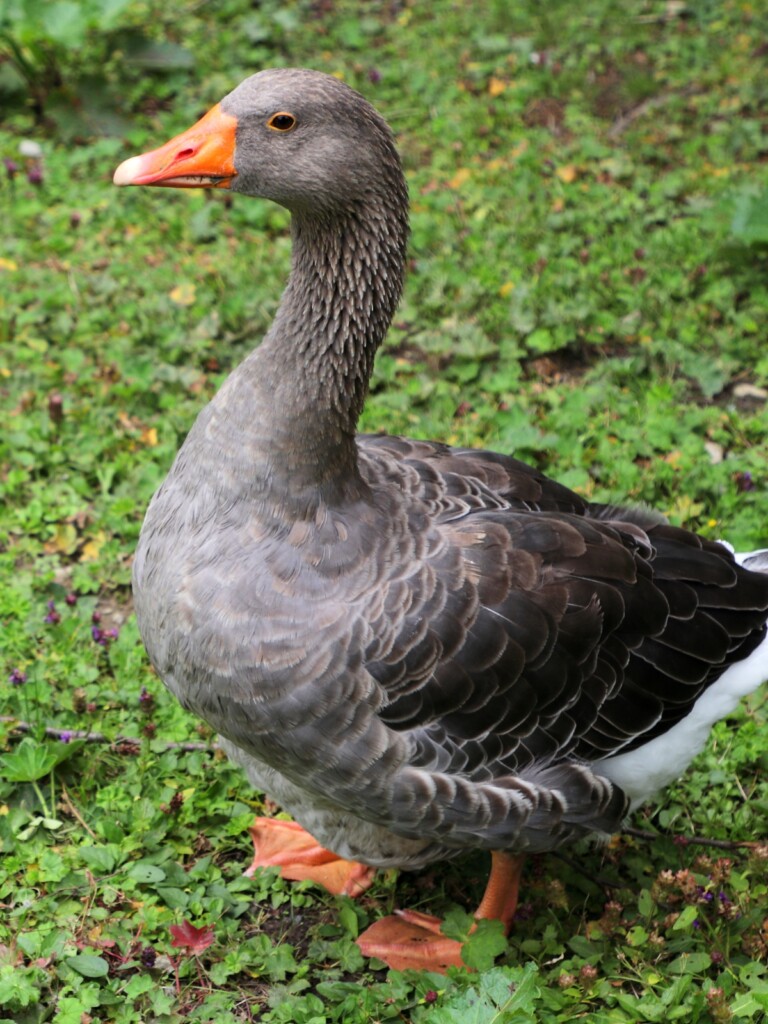
Egg Production
Egg laying is seasonal and typically begins in late winter or early spring. Hens usually produce 20 to 35 large white eggs per year, with the exact number varying by individual and environment.
Toulouse eggs are excellent for hatching, with thick shells and good fertility rates when birds are managed properly. Not all hens go broody, but many will—especially as they mature—and they make attentive, reliable mothers.
Egg Color
Toulouse geese lay white eggs with thick, durable shells and very large yolks. They often seek out secluded nesting spots, so providing cozy, low-lit areas within their shelter will encourage more consistent laying and easier collection.
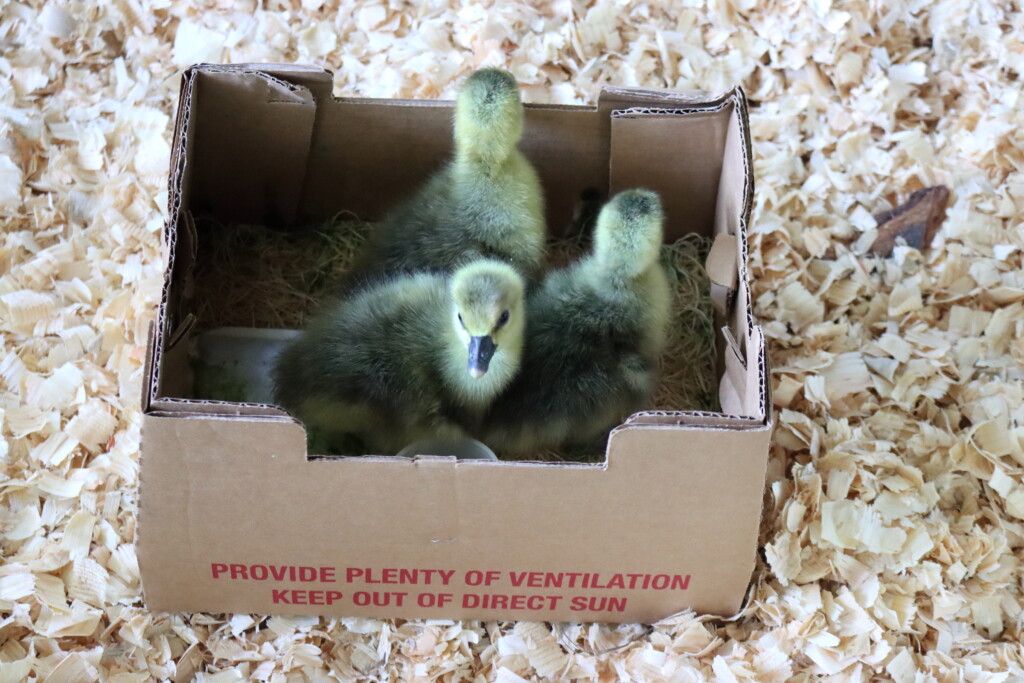
Meat
This is where the Toulouse goose really shines. It’s one of the most respected meat breeds in the world, known for its tender, rich, and flavorful flesh. The Dewlap strain, in particular, has been used for foie gras production thanks to its natural ability to fatten easily, but both types produce a large, well-marbled carcass.
If you’re raising them for the table, expect to butcher at 6 to 8 months for the best combination of size and tenderness. The meat is classic goose—rich, slightly gamey, and ideal for roasting.
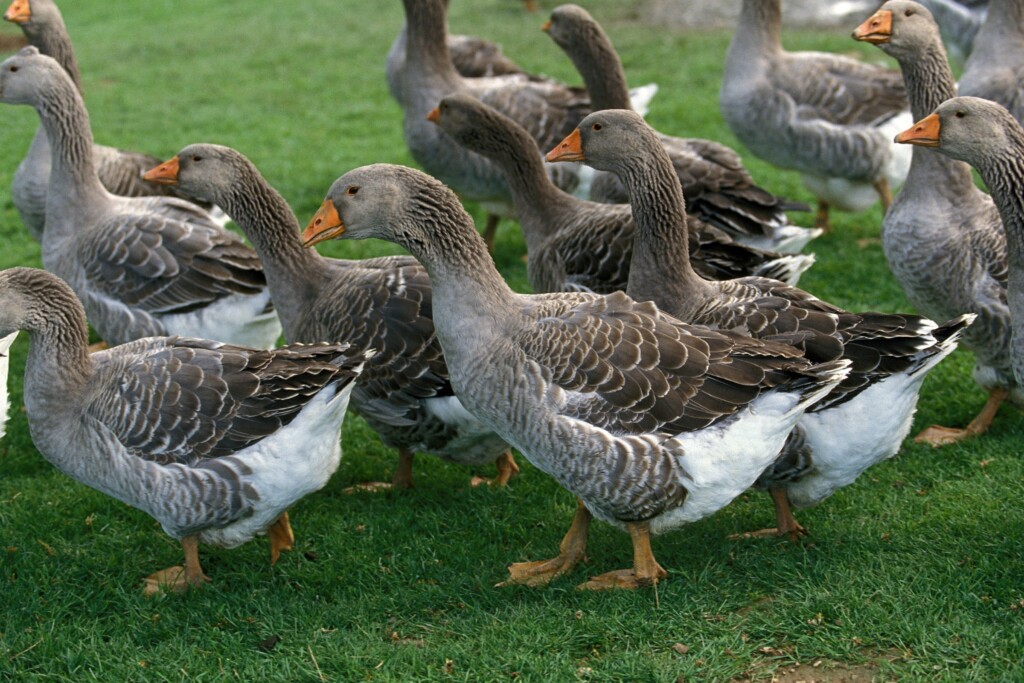
Broodiness
Broodiness varies by strain and individual. Some hens will go broody and sit faithfully, while others may show little interest in parenting—especially in the first year or two. Once bonded to a safe nest site, many Toulouse hens prove to be excellent mothers, especially in smaller, less crowded flocks.
If consistent reproduction is your goal, supplement with artificial incubation or use a more reliably broody breed as a foster.
Foraging Ability
Toulouse geese are slower and less active than lighter breeds, but they still do a good job grazing on pasture. They won’t wander as far or forage as aggressively as a Chinese or Pilgrim goose, but they’re efficient if given enough space and time.
Production types are better foragers than Dewlap types, so choose accordingly if pasture-based management is a priority. Both types will reduce feed costs significantly in spring and summer when grass is abundant.
Cross Breeds
Toulouse geese are commonly crossed with Embdens to combine size with meat quality or with Buff and Pilgrim geese to soften temperament and improve brooding traits. These crosses tend to be large, calm, and cold hardy—great utility birds for general homestead use.
Because of their history as a base breed in many European meat programs, Toulouse genetics are widespread, even in mixed flocks.
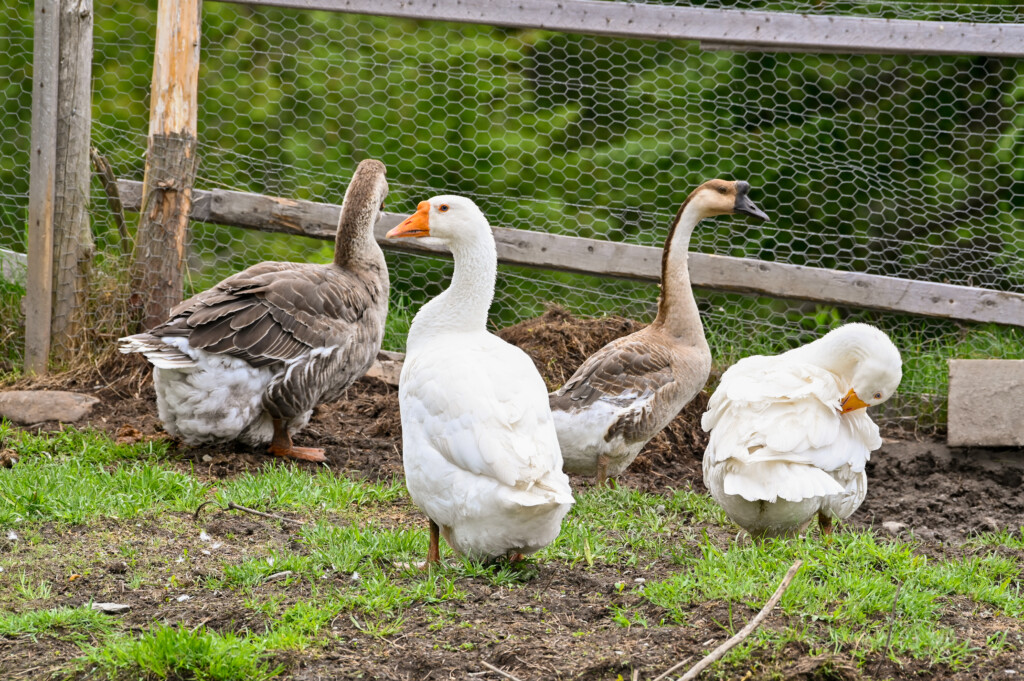
Common Health Issues
Toulouse geese are generally hardy but prone to a few common issues:
- Heat stress in summer
- Leg strain in rapidly growing goslings (provide good footing and limit weight gain)
- Wet feathering in muddy pens (offer dry bedding)
Regular access to water, dry shelter, and pasture will prevent most problems.
Tips for Raising Toulouse Geese
Start goslings on a non-slip surface and monitor their weight closely to avoid joint problems. Let them graze as much as possible once feathered out, and provide deep shade and cool water in summer.
Handle regularly for friendly adults—these geese thrive on gentle interaction. In winter, dry shelter and clean bedding help prevent issues with mud and wet feathers.
Choose Production-type Toulouse for grazing systems, and Dewlap-type for meat-focused operations or show birds.
Toulouse Goose FAQ
Yes—one of the calmest breeds you’ll find. They’re gentle, quiet, and easy to manage, especially with early socialization.
Ganders often reach 20–26+ pounds, and geese 16–20+ pounds. Dewlap types are heavier than Production types.
Moderate layers. Expect 20 to 35 eggs in spring, especially in mature geese.
Some do, especially older hens. Others may need encouragement or assistance with hatching.
Absolutely. They’re one of the best meat breeds available, prized for rich, tender goose meat.
Yes. They’re very cold hardy and do well in wet or snowy conditions.
Yes, though Production types graze more actively than Dewlap types. Supplementing with feed may still be necessary.
